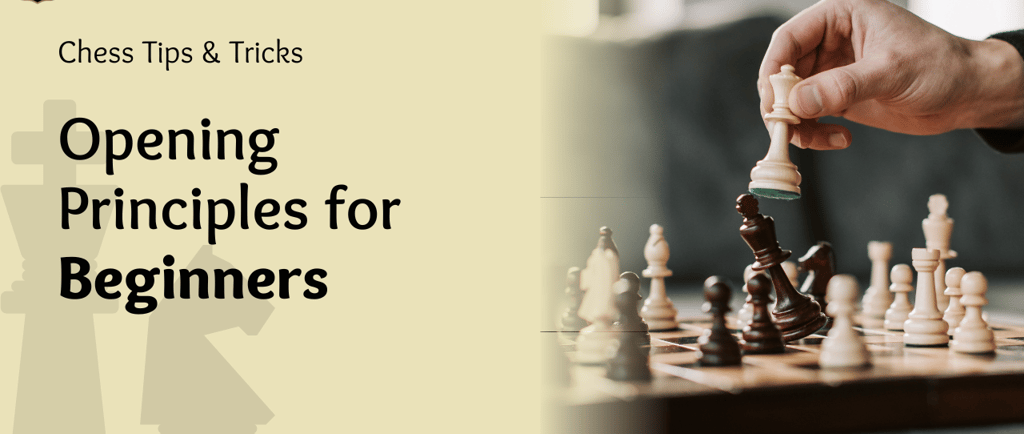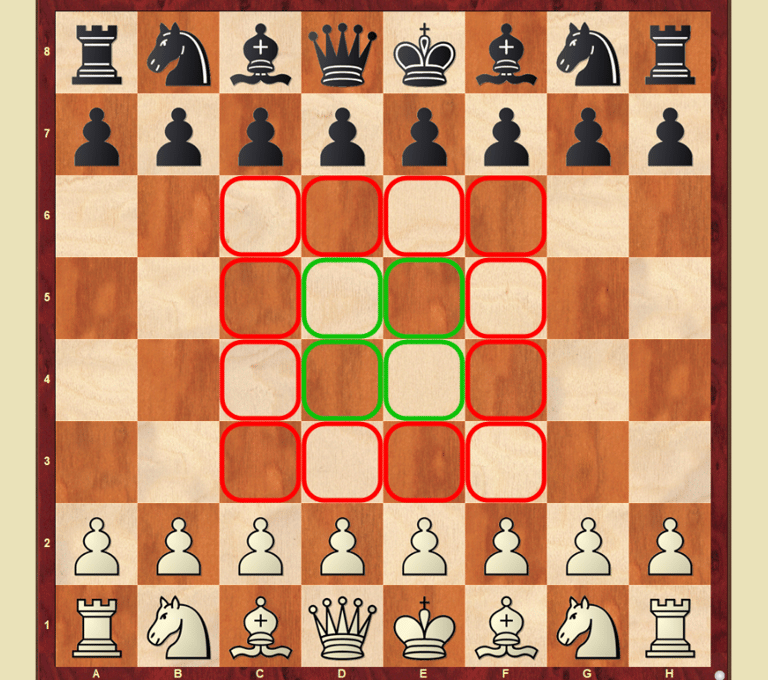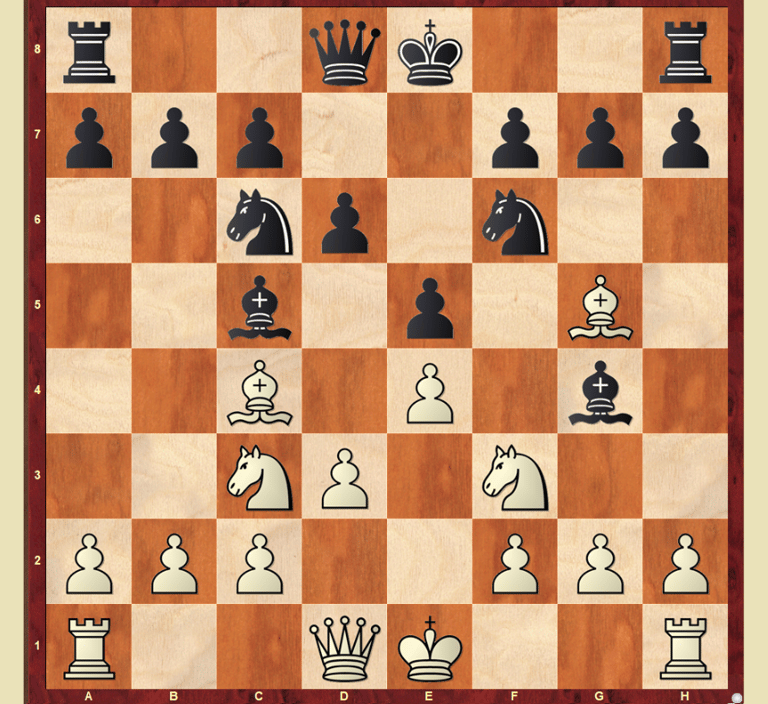Chess Opening Principles
In this post we are going learn why following opening principles is important and how not following them can cost a game.


Opening Principles is one of the first things that you will learn in any chess classes. Opening principles help a player to get ready for the battle or the middle game. Following opening principles will give you a solid position in the middle game from where you can start planning to attack and prevent your opponent from attacking your king easily. Following are the Opening principles you should follow to become better at chess.
Control the center squares
The squares e4,e5,d4,d5 are the center squares. The diag. shows the center squares highlighted. Your pieces are most active when they are at the center of the board. At the beginning of the game is hard to keep your pieces at the center of the board, so you should try to control those squares by attacking them. You can control most of the center squares by deploying your pieces on the sub center squares(marked in red in diagram).


Diagram showing center and sub center of chess board
Game below shows what happens when you give up the center control.
Develop your Bishops and Knight first
Bishops and Knight are called as minor pieces and they can control very less squares as compared to Rook and Queen, but more squares than pawns. So it suggested to develop your Bishops and Knights first. You have to see that the pieces you develop are controlling the center squares at the same time. Having developed your minor pieces first make them good attackers if you place them right as well as good defenders. The diagram below shows one of the best squares for development of pieces. Note that these are not the only squares where pieces should develop. The pieces can develop to other squares too where they can do much better jobs.


Diag: Some of the ideal squares for minor piece development
Castle as soon as possible.
For beginners it is very important that they learn to castle early in the game. When you are developing your pieces to control the center squares, you often have to move the pawns which are in front of the king(you can see in the above diagram). So castling early will keep your king safe from the immediate attacks. It is suggested that you keep at least one minor piece to protect your castled king, preferably a knight. Avoid moving the pawns which are in front of the castled kings. Move them only when there is an absolute need of the defense.
Never move a piece twice unless and until you have an advantage/disadvantage
One of the very important point. Lots of beginners try to play the game by developing only one or two pieces. You cant win against an experienced player just by developing 1-2 pieces. There is a reason you have been given an army, use it!! You should see that each move you are developing new piece unless you are getting a free piece or going to lose a piece.
Don't take our your queen early.
Queen is the strongest piece on the board and if you take it out early, your opponent will be one of the happiest person in the world. When you take out your queen early it gives your opponent a chance to develop his pieces while attacking your queen at the same time. Since you will be moving your queen again as it is attacked, you will also be breaking the 4th principle we just learned. This will give your opponent a lead in development and help him to gain initiative in the middle game. So don't take out your queen out early unless you know that it wont be attacked by any pieces.
Don't make too many pawn moves.
Pawns can control only 2 squares at a time and they cannot move behind. So it is very important that you don't make too many pawn moves at the start of the games. Few pawn moves are needed so that your pieces can come out. So it is important that when you move the pawns they control important squares like center squares.
